Review: Cherry Audio Mercury 6. The Wait Is Over!
Of all the classic Roland synths that have been emulated, one had been notably absent, until now. Cherry Audio’s Mercury 6 gives us the Jupiter 6 emulation we’ve been waiting for, and so much more.
A Little Background
Plug in synthesizers have always tended to fall into two camps; new, exciting synths, and emulations of long gone or hugely rare and expensive classics. Given that Roland have been responsible for some of the greatest synthesizers ever made, their legacy has often been plundered. In recent years, Roland’s own Cloud service has sated the appetite for many of these. Other companies have also had a bite at the cherry, if you’ll excuse the pun! But one has always seemed to evade the coding departments of all the obvious protagonists. That is until now. Cherry Audio have beaten Roland to the punch and given us Mercury 6, their rendition of the Jupiter 6.
Roland’s Jupiter range of keyboards began with the Jupiter 4, followed by the daddy of them all, the Jupiter 8. The Jupiter 6 was often considered a budget version of that classic. Released a couple of years after the JP8, the JP6 had the gross misfortune to debut the same year as the Yamaha DX7. It might be fair to say that everyone’s heads were turned by the big, brown digital one. But for whatever reason, the Jupiter 6 never quite achieved the fame and notoriety of its predecessors.
Over the years, the Jupiter 6 gained a cult following, but no love from software developers. That changes today with the launch of Cherry Audio’s Mercury 6. Mercury 6 follows in the footsteps of Mercury 4, their take on the OG Jupiter. In typical Cherry Audio fashion, not only have they striven to accurately emulate an original Jupiter 6, they have gone beyond that and given us a lot more to play with.
Mercury 6 – The Stats
As with all Cherry Audio synths, Mercury 6 offers up 21st Century features that take it beyond the design of the original. However, you can dial some of these back to give you a more authentic experience should you wish. Polyphony is now 16 voices, up from the original’s 6, but can be adjusted to suit.
The classic JP6 Multi-mode filter is replicated here with a 24db/oct low pass and high pass mode plus a 12db/oct bandpass mode. Also making it over from the original is the distinctive VCO 2 to VCO 1 FM cross-modulation that delivered those searing leads and basses. The Jupiter 6 had a really neat split mode. This is replicated in Mercury 6 alongside a new layering feature found on previous Cherry Audio synths.
The Jupiter 6 arpeggiators were highly lauded and sought after. So it is no surprise to see that replicated here and then some. And it goes without saying that the 2 VCO’s per voice are all present and correct. Cherry Audio’s per-layer drift control for both oscillators and filters is here too. This gives you that authentic analog character often missing in some soft synths.
Cherry Audio then heap on all of their regular bells and whistles. Superb effects, complete MIDI control and support for DAW automation, resizable UI, low CPU load and a motherlode of presets!
How Does It Sound?
I would love to be able to give you an educated comparison between Mercury 6 and the hardware instrument it aspires to emulate. Sadly, I have never had the pleasure of the real deal. That said, Mercury 6 delivers a sound and style that certainly bears out the comparisons I have heard between it and its forebears. It might be fair to say that we are all now a bit tired or weary of the JP8 sound. It’s been done well by the likes of Roland, Arturia, TAL and others. So to experience the Mercury 6 is actually quite refreshing.
It most definitely has the character of the original and the overall Roland “sound” of the time. Lots of heft in the bottom end as well as a real bite and edge. Pads are rich and expressive but offer something more than you’d find with a JP8. The effects naturally play their part here, as does the layering, so Mercury 6 really transcends its inspiration and relations.
The Mercury Jupiter Conjunction
Come on, I had to get some kind of astronomic reference in, didn’t I? I wanted to highlight the visuals of Mercury 6. Save for a few obvious tweaks and adjustments to accommodate the new features, Mercury 6 gives off a heavy Jupiter 6 vibe. Mitchell Sigman has always done great work with Cherry Audio’s designs. Mercury 6 represents a slight change in direction when it comes to the visuals.
This is the first new Cherry Audio synth to feature the graphic skills of Mal Meehan. Some of you might know that name from previous associations with the likes of The Bob Moog Foundation, Abbey Road Studios and Acoustica, to name but a few. Mal brings his decades of graphic design experience to Mercury 6 working alongside Mitchell. If Mercury 6 is anything to go by, this team has got off to a promising start!
Mercury Rising?
Alright! I’ll stop with the naff Mercury references!
You might be wondering, after all that, about what I think of Mercury 6? Like I said, I cannot do a direct comparison with the hardware. Even so, Mercury 6 does sound very much like I’ve had a Jupiter 6 described to me by more learned individuals. It has plenty about it to differentiate it clearly from the ubiquitous Jupiter 8 emulations out there. In fact, I have to say that it has rapidly become a firm favourite of mine during the time I’ve spent with it. It packs that great Roland sound of the early 80s and ramps it up brilliantly. The layering and effects really make it stand out. It is very much a synth that begs you to play it.
Moreover, and I realise how trite this might sound, but it oozes musicality. Every patch you go through conjures up a chord progression or riff. Mercury 6 has a sound that encapsulates an era when analog polysynths were still over everything, but desperate to keep up with the digital new kids on the block. To my ears, that’s a good thing.
The synth community has been crying out for a Jupiter 6 in software for years. And here are Cherry Audio, purveyors of great value, quality software instruments, delivering what Roland have yet to. I think we can safely tick this box now and doff our caps to Dan, Mitchell, Mal and the rest of the Cherry Audio Team. I guess we wait to see how Roland Cloud respond to their bloodied nose…
More Information
Cherry Audio Mercury 6 is available in AU, VST, VST3, AAX and standalone formats. Pricing is $69 USD, discounted to $49 USD at launch and a free 30 day demo is available.
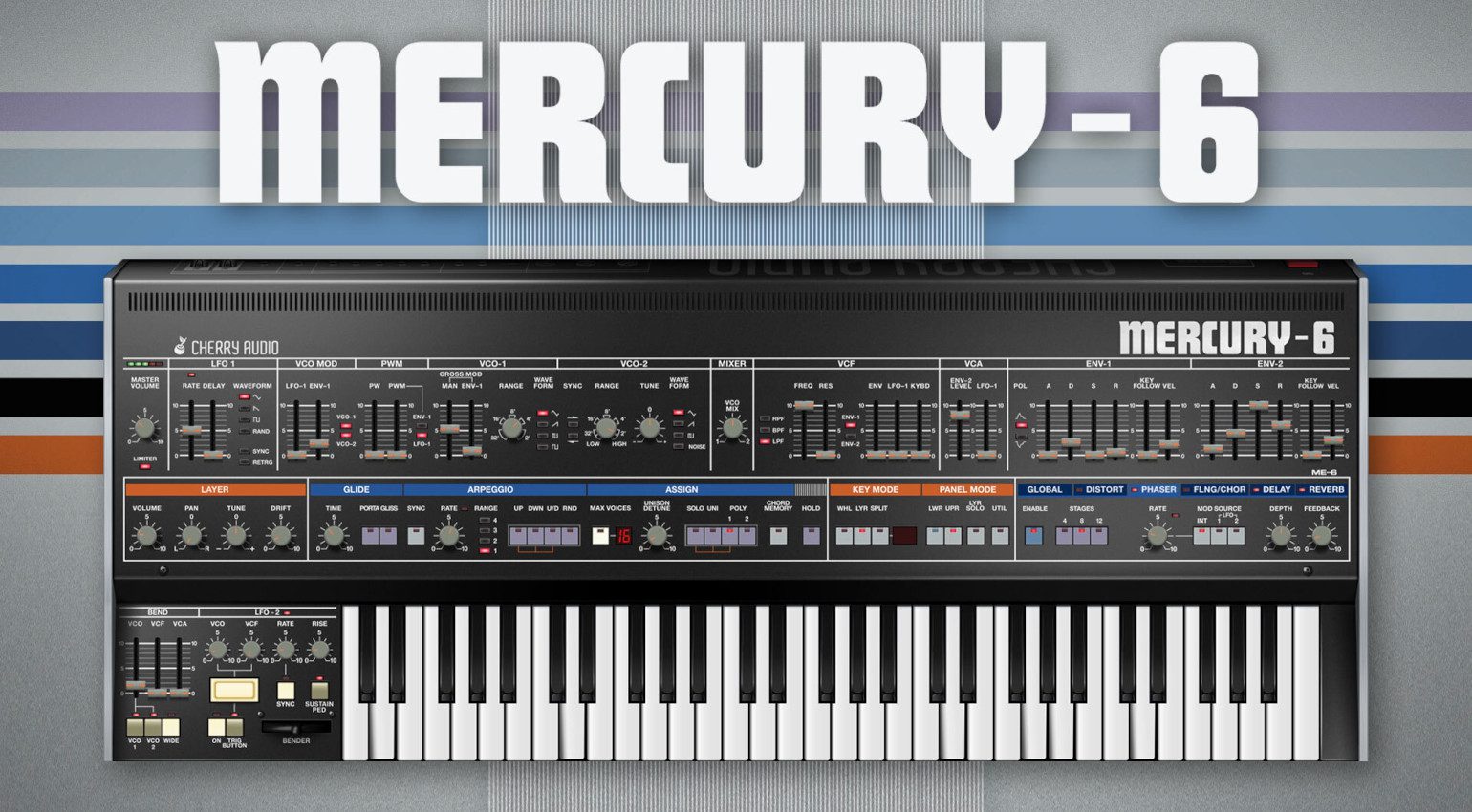
- Mercury 6 Front Panel: Cherry Audio
- Mercury 6 VCF/VCA Section: Cherry Audio
- Mercury 6 FX: Cherry Audio
- Mercury 6 Presets: Cherry Audio
4 responses to “Review: Cherry Audio Mercury 6. The Wait Is Over!”
 4,6 / 5,0 |
4,6 / 5,0 | 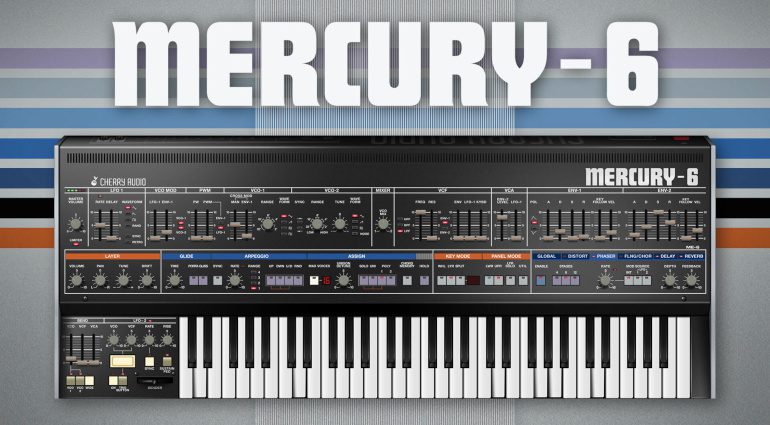
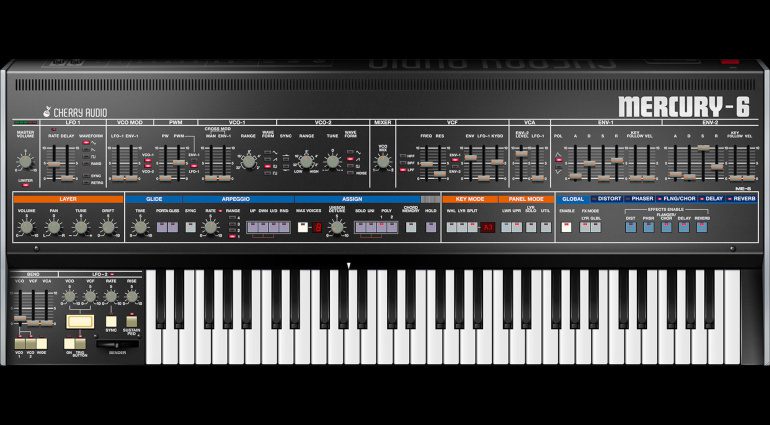
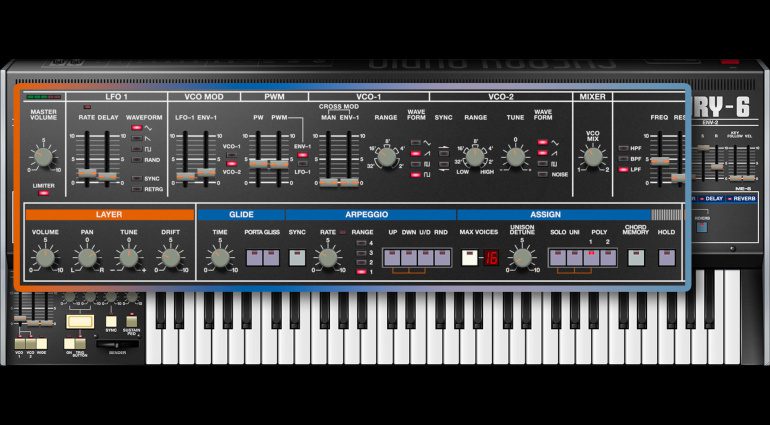
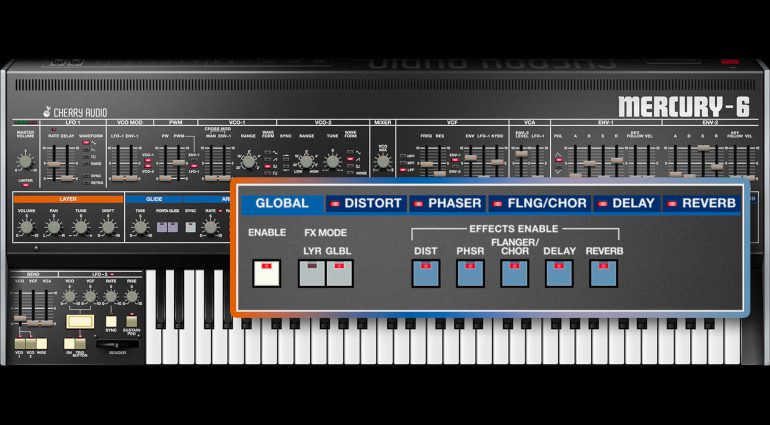
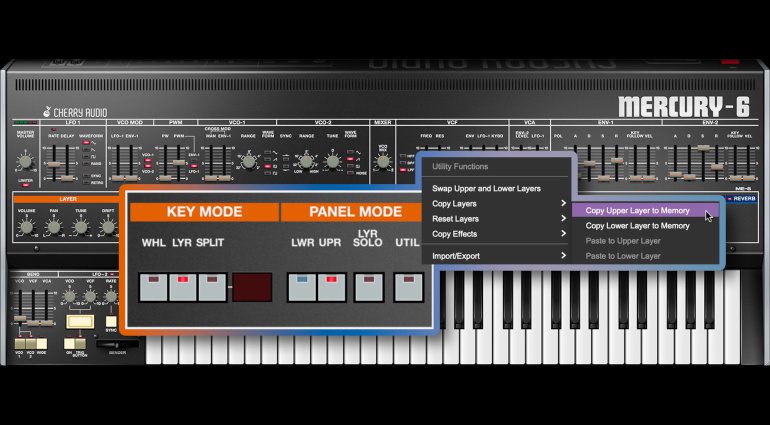
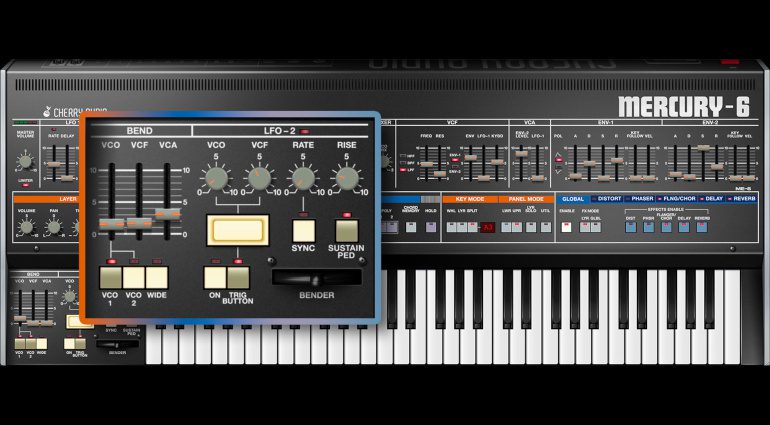
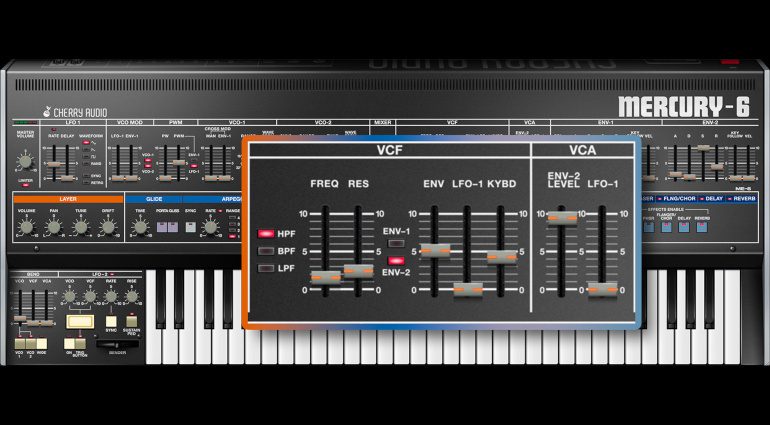
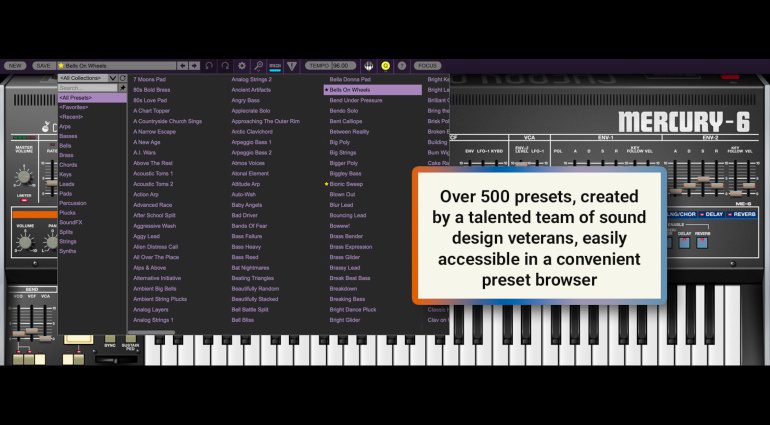








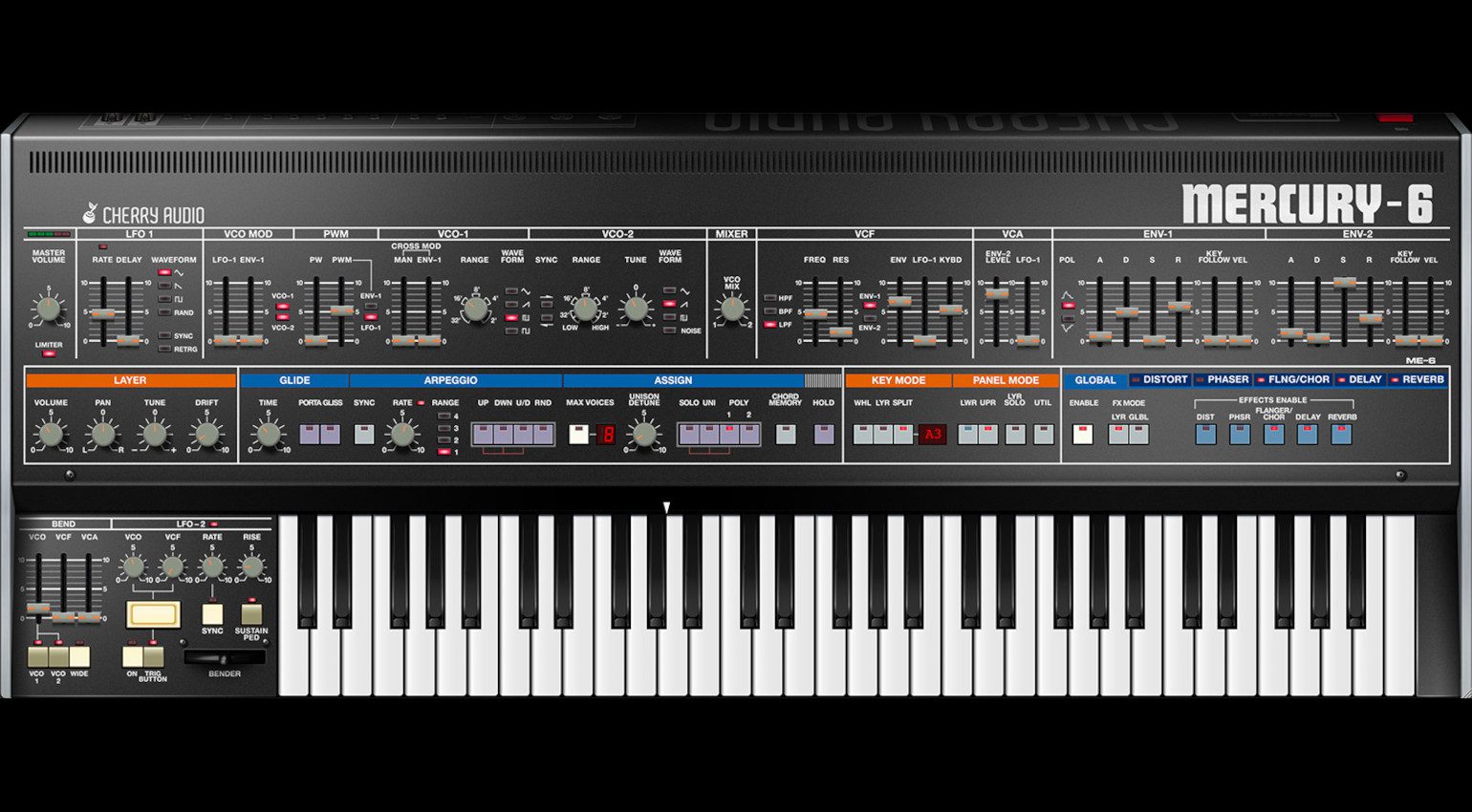
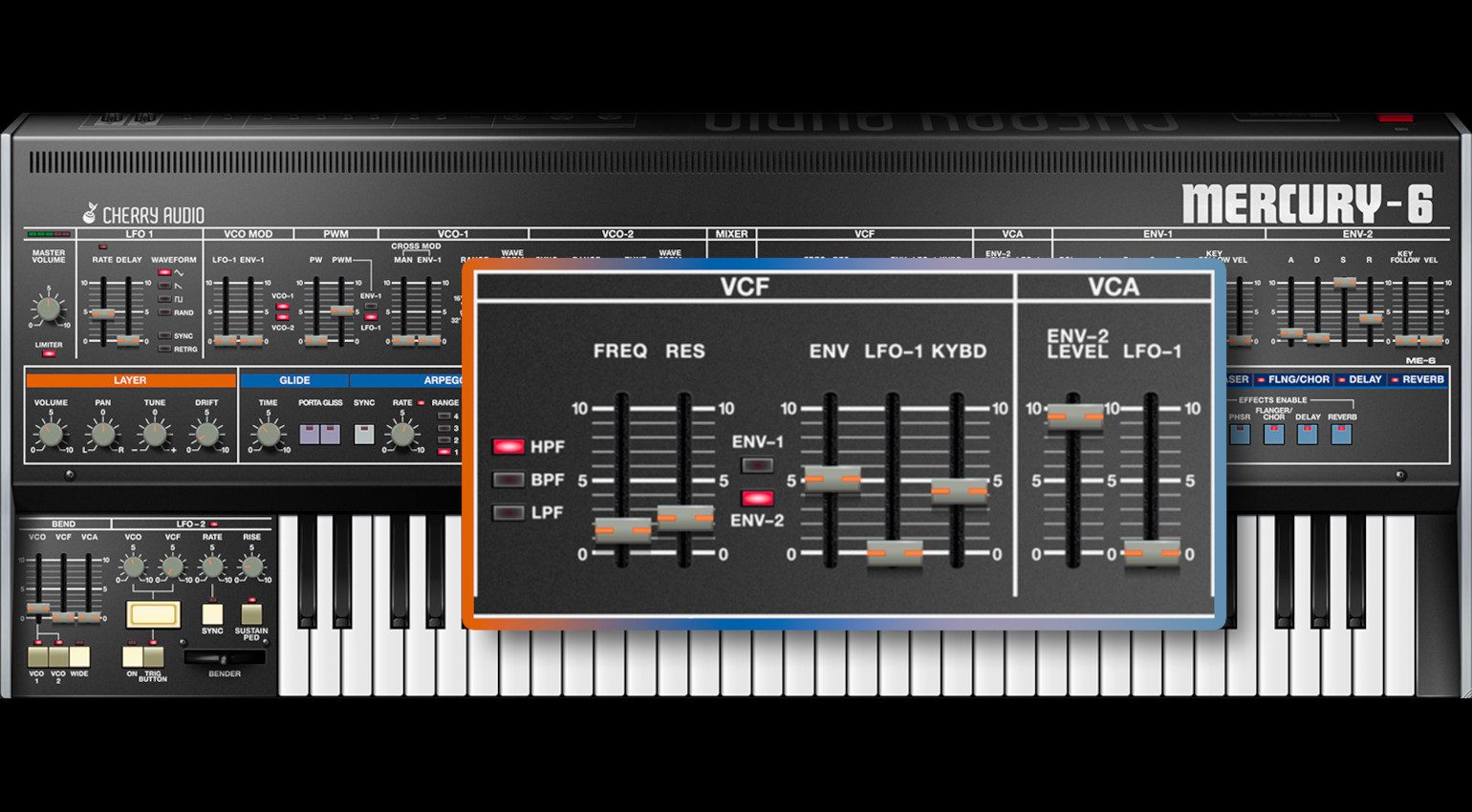

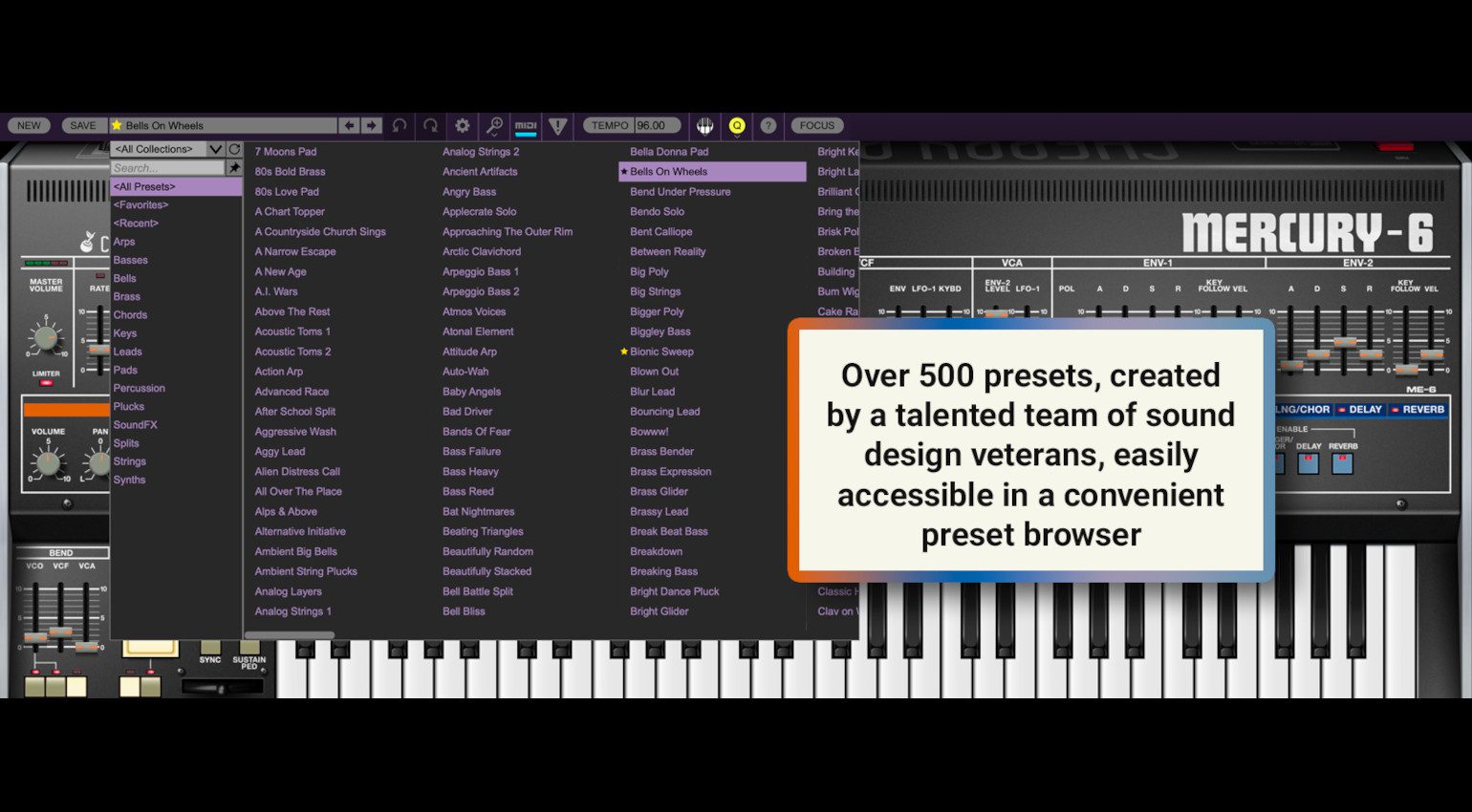

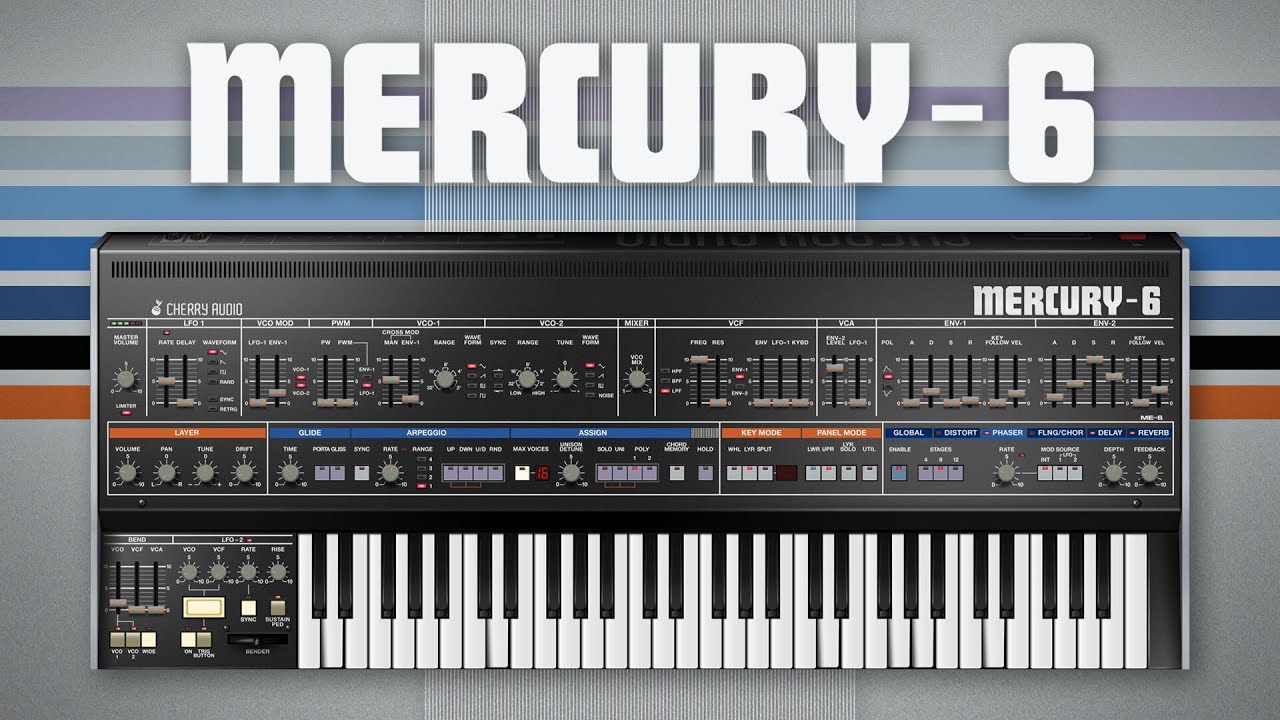
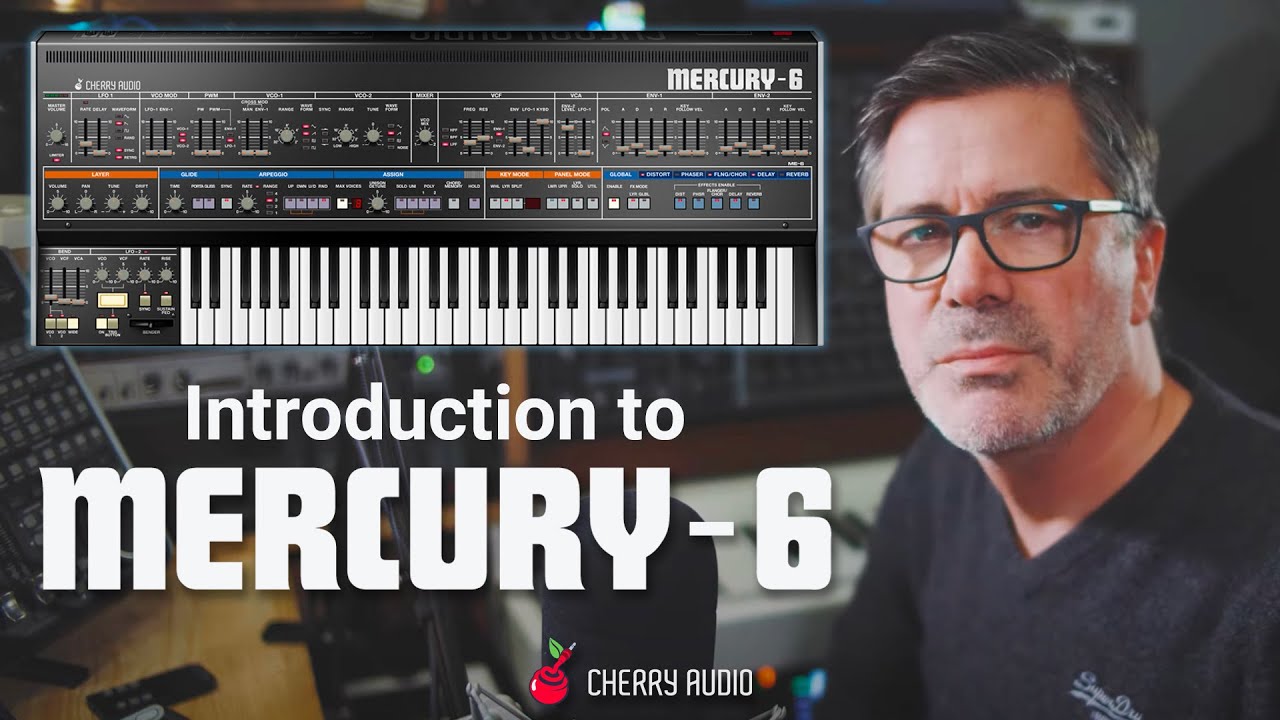
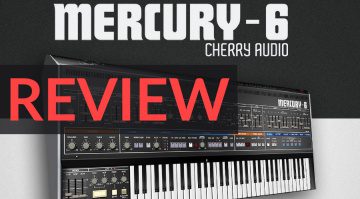


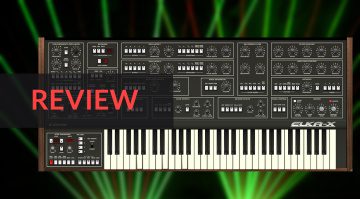
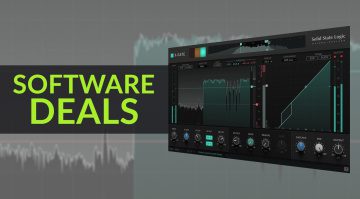
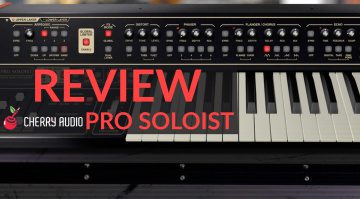
LOL. Jumped the gun a bit? I saw this article in my news feed an hour before Cherry Audio made its announcement. Not sure it’s an instant buy for me like a lot of the CA instruments have been. this one’s “different” but I don’t find it as interesting as some of their other instruments like the Quadra or the Elka-X.
I’ve already installed it and went through some presets. All I can say is “Hello old friend”! I had bought an original JP-6 from Manny’s when they first came out and gigged on it five nights a week for years. I can’t do a direct comparison I foolishly sold it way back. I think CA captured the vibe quite well. If only I could load my old data cassette patches into it. LOL
Oh, nice! I’ve been after something which looks like (and hopefully sounds like) a Jupiter 6 for ages. Orbital used to use one live back in the mid 90’s and it had real Stage Presence (I saw them live a few times).
do they honestly think we’re still going to fall for the “introductory” sale that’s been going on for years…..